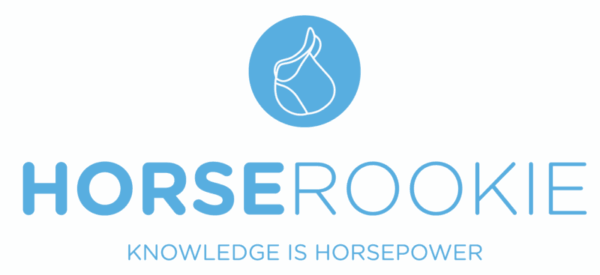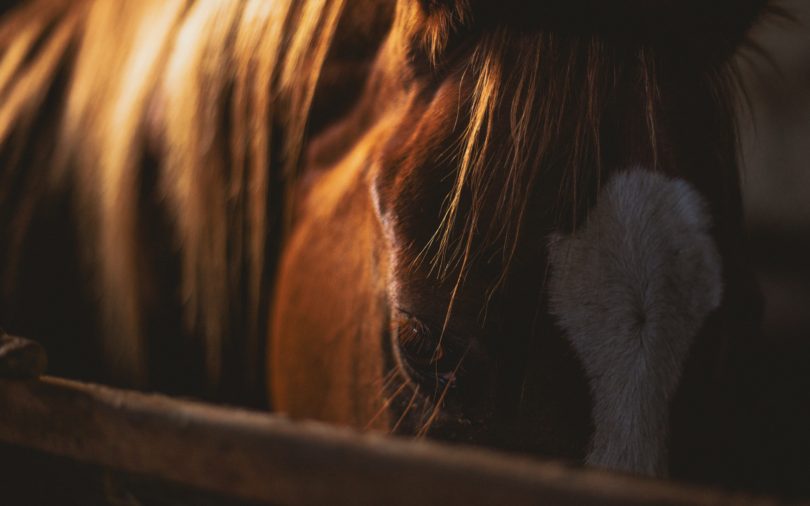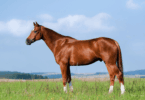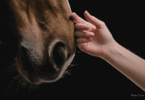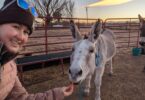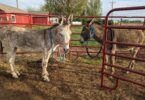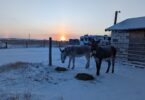Riding is joyful, once you get past depression
Across many online horse forums, I have seen an uptick in conversations around depression and horseback riding. Many people are suffering from depression and reaching out to the equestrian community for help. They wonder why this amorphous, gloomy monster has sapped their desire to do the one thing they love most — ride horses.
Depression is a serious condition, and horse riders are not immune to it. Though equestrians may temporarily lose the desire to go to the barn, connect with friends, and spend time with their horses, this state does NOT need to be permanent. If you’re willing to put in the time and effort — especially with the assistance of a professional mental health expert — you can move through depression and emerge on the other side. The best news of all? Horses will still be there when you’re ready to return.
A Tough Reality
I have seen people, especially girls, display photos with their horses and ask their peers why they don’t even care about being around them anymore. They may have gone through hard times before, but never have they wanted to stop riding because of it.
The majority of horse fanatics go to the barn for solace from the stresses and heartache that life sometimes brings. It’s a scary thought that amid our darkest times, we may lose our desire to do the activity that previously seemed to bring us life. Carrying these cries close to my heart, I started wondering how these horse-crazy girls could be so depressed that they didn’t even want to go to the barn anymore.
Then I remembered: I was once one of those girls.
Dark clouds
It feels so long ago and so far-removed from my life today that I’d nearly forgotten that depression once swallowed my desire to ride. It didn’t even make sense to me at the time either. I simply awoke one morning, and didn’t want to do it anymore.
I couldn’t articulate to my family or my trainer why; I just couldn’t muster the emotional or physical energy to go to the barn.
Horses had been a part of me since I was five years old.
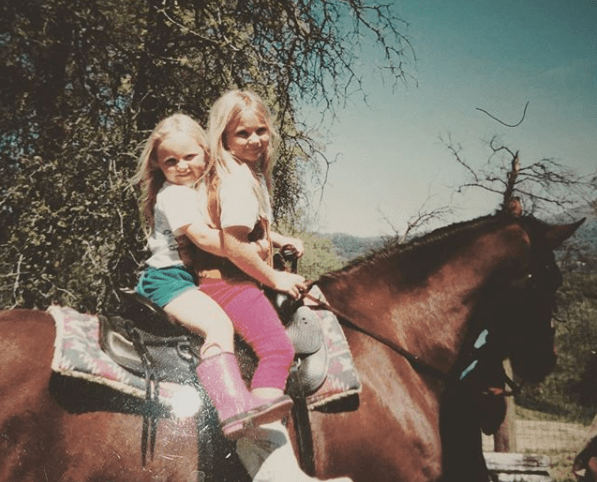
The craze had started sooner than that, but the obsession became real when I had my first riding lesson. I rode a beautiful bay Arab-Quarter Horse gelding named Shadow. He taught me the basics of turning, “hoa” and “go,” and he was my first equine heartthrob.
Over the years, I continued my riding journey at competition barns, where I moved on from the comfort of Shadow’s big leather bucket of a western saddle and dusty withers to an English hunter’s saddle and jumping classes.
My appetite for equestrian sports continued to grow through my pre-adolescent and early teenage years. I found a trainer that I absolutely adored, and she taught me the most about the beautiful basics and details of horsemanship and riding.
Every week was both a challenge and a thrill, and I loved every second of it.
Unexpected shock
Then, out of nowhere, my dad got sick and died.
I hate to put it that way, but that’s the gist of what happened. I’ll spare you the details, because the thing I want to stress is that shit happens — my life is not unique in that regard.
But I didn’t deal with it right away. I pretended it didn’t happen, because I had no idea how to cope with such profound devastation.
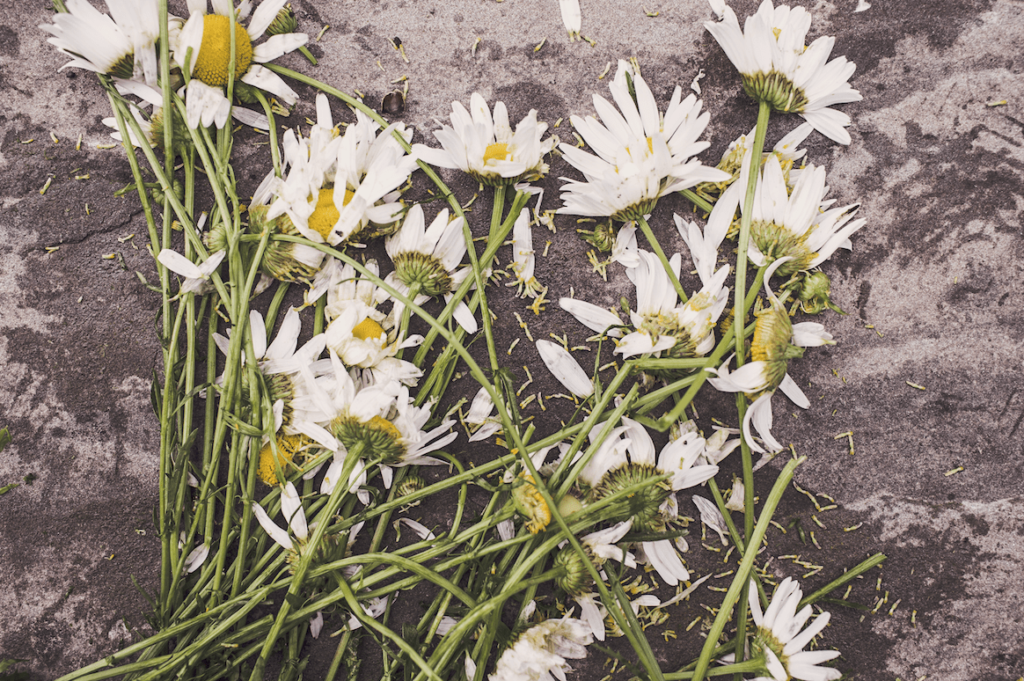
Photo Credit: Pexels
I started high school shortly after my father passed away and continued riding. I welcomed the distraction my lessons brought from the loss that was waiting for me the other 165 hours of the week.
Regardless of thinking I still had things under control, one day I simply quit riding. Frankly, I don’t remember that conversation with my trainer. I don’t remember that conversation with my mom. I just stopped.
One week I was riding, and the next week I wasn’t — and I didn’t return for years.
Grief settles in
Needless to say, grief had caught up with me in a bad way. When you don’t confront traumatic loss, it doesn’t stop hurting. I chose not to even acknowledge that I was sad, or angry, or that I felt betrayed — by God, by life, by myself, by my late father. I chose to simply not feel.
Amongst all my not feeling, the feelings became something else. It turned into a deep depression that took a lot of time and background emotional processes to tease out.
My mom, bless her heart, tried everything to get me to deal with losing my dad. She was never not trying. She could see that I w no longer cared about my life or well-being anymore. I was doing destructive things and putting myself in danger.
Finally, it got to the point where she put her foot down and made me go to therapy.
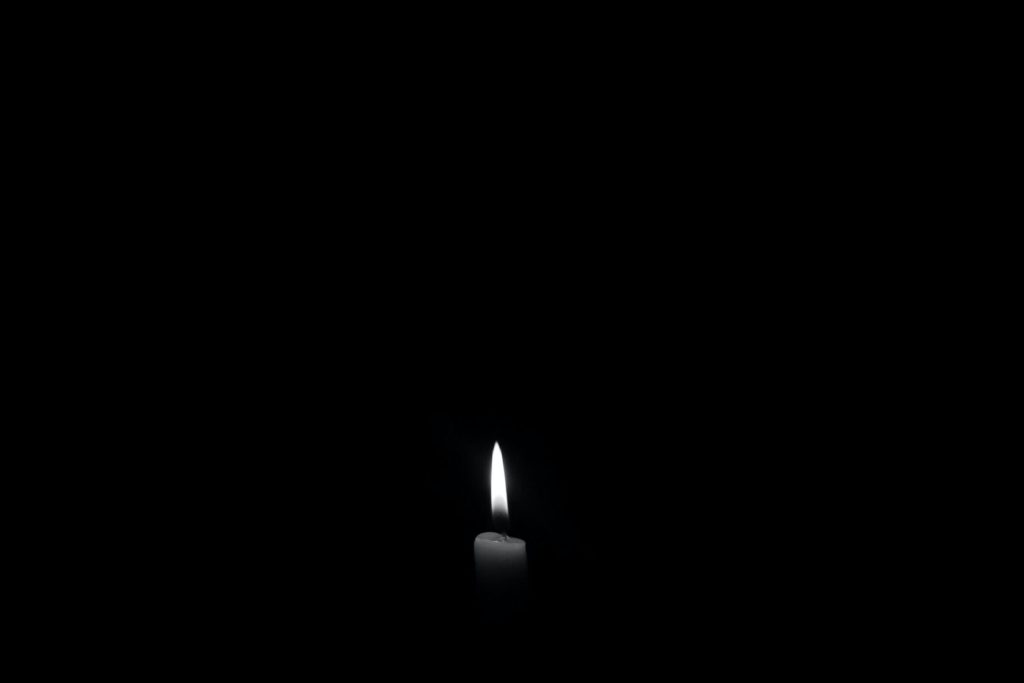
Photo Credit: Pexels
When I went, it wasn’t at all what I thought it would be like. The therapist understood me and my process: I could only handle feeling a little bit at a time. Week after week, she helped me unpack my grief for an hour so that I could heal through a bite-sized chunk of heartache. Then she helped me pack the rest of it back up, and go about my week feeling a little lighter, a little stronger, and a little more comforted.
The clouds move on
As I began to feel again, I also started to miss riding. I didn’t feel like I could go back to lessons though — I thought I’d flushed that opportunity down the toilet.
Then one day we got a call one day that my grandparents’ neighbors and close friends. They had bought a new horse — a bay Arab-Quarter Horse gelding named Shadow.
It turned out to be “my” Shadow. Surprise!

My former trainer had been downsizing and needed to sell some of her horses to good homes.
During the next visit to my grandparents’ house, I was overbrimming with anticipation and nerves. I tried everything I could to not let the excitement overwhelm me. I didn’t think I could handle the disappointment if my reunion with Shadow was disastrous. I also worried I still might not feel anything during the ride.
I needed to see if I still had anything I looked forward to.
We went to the neighbor’s house, and I tacked up Shadow. The neighbor’s daughter was my age and enjoyed a good trail ride, so she rode their other horse. We set out down the wooded back roads towards the Sierra Nevada hills of Central California.
With one deep inhale of the pine-swollen air, bluejays whirling around us, and Shadow’s dusty withers, I was back.
It was as though I could finally breathe again. I felt something strange that I hadn’t felt in a long time—happiness. And it wasn’t fleeting, either. It was a feeling I could hold onto.
We rounded a gravel road up towards the mountain trail. My friend looked over and dared me to go for a good run. I didn’t hesitate to open Shadow up to a full gallop up that long hill. In that instant, holding onto his thick black mane and moving effortlessly with the rhythm of his stride, I felt completely… free.
When the ride was over, circumstances in my life didn’t magically change. My depression didn’t go away immediately. Grief was still there and had to be dealt with. But I had glimpsed the other side of life—that I could feel good again—and my heart began to heal.
How God knew that my childhood horse could bring me back to the land of the living still amazes me. I rode Shadow before anything bad had happened, when everything was still new and magical about these beautiful creatures. All I can say is that I’m grateful.
Getting to the other side
The road out of depression was hard, and there wasn’t one simply thing that made it go away. It was a combination of choosing to move forward, people reaching out in my ugliest stages, and accepting the help that I needed.
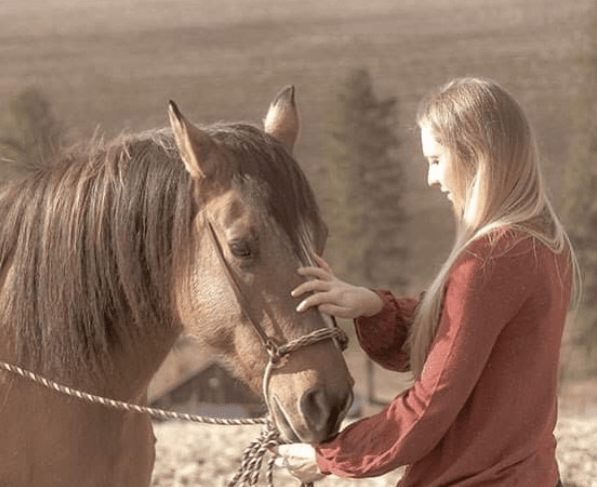
Some people reach a point in their mental health journey where they need to take medication or see a therapist. I needed therapy. I know there’s a stigma (which is slowly going away now, thank goodness) that mental health is something people should be able to fix on their own.
When we get a broken leg, though, why wouldn’t we put a cast on it? Mental health shouldn’t be treated any differently.
My journey out of depression and grief also took time. Every little moment in depression seems to count, because time seems to drag on and vanish all at once. It’s like an alternate reality where your mind and emotions don’t follow the normal rules of time and space.
For those who are struggling with depression:
You’re not alone, and you’re not powerless.
You need to keep fighting. Find your reasons to live—not just your reasons to stay alive, but reasons to live fully. They are there, I promise.
Reach out to your close friends and family, so they know you need extra support. See a therapist or psychologist to help you with things family might not be able to. Eat a bit healthier and perhaps try light exercise. Keep doing the things that were life-giving before depression set in.
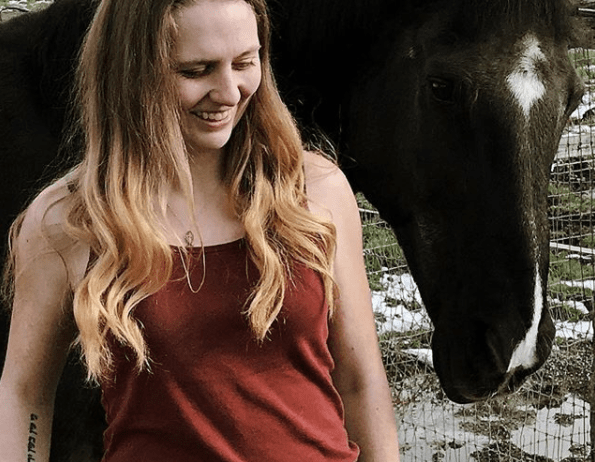
Because one day, one of those things will cause the fog to lift, even for just a moment. And that moment will remind you that there’s life to be lived on the other side of, in the midst of, and in spite of depression. You will get to the other side, filled with more strength and compassion than you ever had before.
For more resources about dealing with depression, check out this list of Depression Resources on Everyday Health.
Frequently Asked Questions
Do horses help with depression?
Equine therapy is used to help individuals suffering from depression, along with a myriad of other conditions. Horses make for excellent therapy animals because they provide immediate feedback based on the handler’s actions and can mirror the handler’s feelings, which could be helpful if working with a therapist.
According to WebMD, pets can help manage depression as they can provide a regular schedule, creating purpose and routine. Petting an animal helps increase oxytocin levels and decrease cortisol, both of which can be beneficial to someone struggling with depression. Working with horses provides exercise and social interaction, also helpful in managing depression.
Do horses help with anxiety?
Horses can be very effective therapy animals for individuals suffering from anxiety. The therapist can use a variety of techniques involving horses to treat anxiety, some of which may include:
- Cognitive therapy: if you are nervous, horses will generally pick up on that feeling and become nervous as well.
- Scheduling Activities: Anxiety can cause individuals to avoid activities outside of their comfort zone. Horses require a high level of care, and a daily routine—this can help teach responsibility, flexibility, and planning skills, all while redirecting the focus away from the individual.
Horses are prey animals, which makes them very perceptive. They can pick up on human feelings, such as anxiety, and provide consistent feedback to the individual and therapist in real-time.
Are horses good for mental health?
Horses can be very good for human mental health. They can read our emotions and reflect them back to us. They react to us with full honesty—you always know where you stand and don’t have to decode complex thoughts or ulterior motives.
Interacting with horses generally requires some amount of outdoor time and physical exercise, both of which are proven to be beneficial for mental health. Humans can develop therapeutic bonds with horses based on mutual trust and respect.
There is a famous quote by British Prime Minister Winston Churchill “There is something about the outside of a horse that is good for the inside of a man.”
Can horses relieve stress?
Time spent around horses generally involves some level of physical activity; whether you are riding, grooming, or mucking out stalls, each activity involves some degree of exercise, which helps reduce stress. Performing rhythmic tasks such as grooming or longing a horse can be relaxing and help de-stress. Time spent in the saddle, especially working on something new, can provide a sense of accomplishment.
A Washington State University study measured a substantial decrease in stress in children after working with horses. Children who participated in a 12-week program at a therapeutic horsemanship facility showed significantly lower stress hormone levels than the control group, which had no equine interaction.
Do horses get depressed too?
Evidence suggests that horses can experience something akin to depression in humans. Pain, social isolation, boredom, trailering, and harsh training methods could all be contributors towards depression symptoms in horses. Depressed horses may exhibit symptoms such as decreased appetite, cribbing or weaving, avoiding other horses, disinterest in environment, or an unwillingness to work. Stressed horses may develop ulcers or colic.
Some horses may be depressed if they lack social interaction—if you can’t provide a second horse, another animal such as a donkey or goat can help keep them company. Just like people, increased access to outdoor time and exercise can help combat depression. A third option is to adjust the horse’s feed schedule to add more access to forage. Always consult your vet if you suspect pain or a physiological issue could be the root cause of your horse’s discomfort.
P.S. Enjoy this article? Trot on over to:
- Scared to Ride Your Horse? Here’s How to Get Your Mojo Back
- Will an air vest help if I’m scared to ride my horse?
- Shelby Dennis: Letter to My Rookie Self
- 5 Yoga Poses Equestrians Should Do Before Every Ride
- 3 No-Fear Secrets to Gain Your Horse’s Trust and Respect
Sources:
https://www.everydayhealth.com/news/how-horses-help-with-mental-health-issues/
https://evolvetreatment.com/blog/horses-teens-mental-health/
https://www.horsejournals.com/popular/horse-industry/horses-reduce-stress-children
https://www.psychologytoday.com/us/blog/your-personal-renaissance/201801/why-do-horses-help-us-heal
https://anxietytreatmentexperts.com/equine-assisted-therapy/
https://www.webmd.com/depression/features/pets-depression#1
https://horseandrider.com/horse-health-care/depressed-horse
